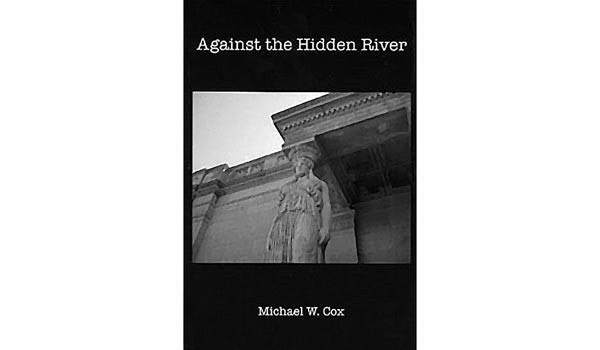Against the Hidden River, Michael W. Cox's new collection of short stories, takes its title from a line in Dante's Purgatorio. And indeed, each of Cox's main characters inhabits a kind of purgatory. Not all are rank outsiders, but even the ones who aren't young male whores or escapees from a mental institution are, painfully, neither here nor there. They'd be outside looking in — if only they knew (or could admit) what they really wanted.
In "Send Off," the fine opening story, narrator Sunil is a buttoned-down graduate student in Chicago — an Indian-American raised in Somerset, Pa. — on his last night before moving to Orlando. In Sunil's wry, earnest voice, Cox beautifully calibrates the emotional terrain he traverses between the wild roommate who likes to bring home hookers, the unstable buddy Sunil meets for breakfast on moving day, and the sweet, compatible young woman upstairs whom he adores but simply can't see any way to be with. ("I did not hug her and I certainly did not kiss her," Sunil says, heartbreakingly, of their goodbye.)
However, the widely published Cox, an associate professor of English writing at the University of Pittsburgh at Johnstown, sets most of these stories in considerably darker terrain. Recurring figures include closeted, middle-aged gay men and the young men who service them.
In one of the collection's best stories, "Oak Park, Illinois" — many of these pieces are set in the Chicago area — the narrator is a rent boy getting it on with a suburban dad when the man's 7-year-old son walks in. The story starts as tragedy — the dad panics and suffocates the boy — but turns into dark comedy thanks to the narrator's wised-up voice and disdainful, playfully cruel attitude toward his john (and everything else).
While motifs emerge in the narratives, there's a pleasing range of tones here. The narrator of "Island" (set in Pittsburgh) has an almost hard-boiled edge as he tells of getting his overprivileged son out of trouble with the daughter of his working-class former mistress. "Unfinished Business," which starts at the funeral of the narrator's father, reminded me of something by T.C. Boyle: the testimony of a literate, sardonic ne'er-do-well. "Abandon" sketches a credible portrait of a young man emotionally closed off to himself because of repressed memories of witnessing his father's infidelities; it ends, lyrically, with a note ironically recalling Joyce's "Araby." "Away From Home," about a young woman's fraught relationship with an emotionally vacant husband, is simply chilling.
Not all the stories work equally well. For instance, "One Dark Sky," in which the narrator recalls, as a child, accompanying his father on same-sex rendezvous, trades too heavily on such overly general metaphors as vampirism and Invasion of the Body Snatchers.
But Against the Hidden River was a finalist for the prestigious Flannery O'Connor Book Award, and deservedly so. It concludes strongly with "Leopold and Loeb," in which the street-kid narrator accompanies his brilliant but mentally ill teenage pal on a break from the mental hospital. Here as elsewhere, Cox navigates a river of sadness, and finds the occasional, if ambiguous, rivulet of hope.















